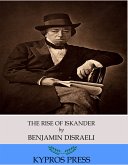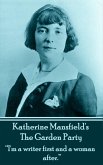Coningsby was the first of a trilogy of novels (together with Sybil and Tancred) which marked a departure from Disraeli's silver-fork novels of the 1830s and which are his most famous. The book is set against a background of the real political events of the 1830s in England that followed the enactment of the Reform Bill of 1832. In describing these events Disraeli sets out his own beliefs including his opposition to Robert Peel, his dislikes of both the British Whig Party and the ideals of Utilitarianism, and the need for social justice in a newly industrialized society. He portrays the self-serving politician in the character of Rigby (based on John Wilson Croker) and the malicious party insiders in the characters of Taper and Tadpole. Benjamin Disraeli, (21 December 1804 - 19 April 1881) was a British statesman, Conservative politician and writer who twice served as Prime Minister of the United Kingdom. He played a central role in the creation of the modern Conservative Party, defining its policies and its broad outreach.
Dieser Download kann aus rechtlichen Gründen nur mit Rechnungsadresse in A, B, BG, CY, CZ, D, DK, EW, E, FIN, F, GR, HR, H, IRL, I, LT, L, LR, M, NL, PL, P, R, S, SLO, SK ausgeliefert werden.









